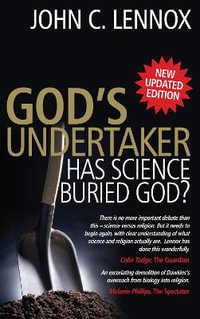Aquinas on God presents an accessible exploration of Thomas Aquinas' conception of God. Focusing on the Summa theologiae - the work containing Aquinas' most systematic and complete exposition of the Christian doctrine of God - Rudi te Velde acquaints the reader with Aquinas' theological understanding of God and the metaphysical principles and propositions that underlie his project. Aquinas' conception of God is dealt with not as an isolated metaphysical doctrine, but from the perspective of his broad theological view which underlies the scheme of the Summa. Readers interested in Aquinas, historical theology, metaphysics and metaphysical discourse on God in the Christian tradition will find this new contribution to the studies of Aquinas invaluable.
Industry Reviews
'It would be difficult to find a more astute retrieval of Thomas Aquinas on God than this seamless account, which presents erudition lightly yet competently, culminating in the startling assertion that Aquinas cannot be dubbed a 'theist'. Finding out how and why this is the case embodies the joy of discovery attendant upon this text'. David Burrell, C.S.C, Hesburgh Professor in Philosophy and Theology, University of Notre Dame 'This is a valuable study in its field. Te Velde shows mastery of his material. This is reflected in the chapter endnotes, select bibliography and final index. These aspects, together with the book's layout, make it more approachable and helpful... It is the work of a philosopher whose clarity and closely-woven arguments never lose their focus and consistency. For that reason, it is accessible to a wider public.' Australian Ejournal of Theology '... an extremely original interpretation, challenging admirers and critics alike to consider whether Aquinas's theological exposition of Christian knowledge of God is intelligible apart from his metaphysical account of reality.' Times Literary Supplement 'This is a very fine, meticulous and scholarly treatment of Aquinas. The author demonstrates familiarity with an enormous corpus of primary and secondary literature alike and yet also has an original turn of thought that ensures each and every chapter offers something truly new and insightful - this is very far from being yet another textbook discussion of the Angelic Doctor. Scholars, postgraduate and upper-level undergraduate students will find much here to inform, inspire and provoke their own studies.' Theological Book Review
























